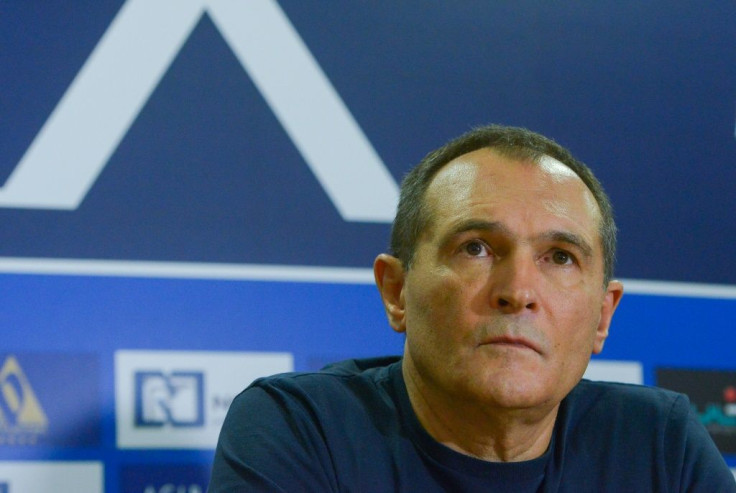Exiled Fallen Oligarch Thorn In Flesh Of Bulgarian Authorities
The recent fall from grace of one of Bulgaria's richest men has stunned his compatriots as they keenly follow his judicial woes in their corruption-ridden country.
After seemingly enjoying government protection for his business interests for decades, lottery king and owner of Levski Sofia top-flight football club Vasil Bozhkov saw his luck falter in January.
The 64-year-old lover of exquisite antiques and fine cigars was charged in absentia with 18 crimes, including murder and leading an organised criminal group, as well as for tax fraud, racketeering and money-laundering.
Bozhkov, who was abroad when he was accused and has not returned since, now staying in Dubai, has denied all the charges. Bulgaria is currently seeking his extradition.
"Oligarchs can no longer remain unpunished as they have for 30 years" since the fall of communism, Chief Prosecutor Ivan Geshev said.
Judicial proceedings have targeted few high-ranking figures over the years despite numerous revelations about the toxic intertwining of business and politics.
The country still remains the EU's most corruption-ridden member, 13 years after joining the bloc, according to Transparency International.
Bozhkov, who majored in mathematics and economics, specialised in casinos and sports betting after the fall of communism, also turning his hand to infrastructure, insurance and tourism to build a business empire.
The little-regulated gaming and lottery business and Bulgarians' obsession with scratch cards quickly turned him into a gambling tycoon.
Revenues from the sector in the EU's poorest country reached as much as three percent of gross domestic product in 2018.
Now Bozhkov, whose real wealth remains a well-kept secret, has struck back from exile, threatening to expose what he said in recent social media posts were the government's corrupt practices.

"The racket of the leading junta was transformed into institutional plunder of private businesses with the help of the prosecution," he said of a government decision this year to ban private lottery games.
Bozhkov accuses conservative Prime Minister Boyko Borisov, who has been in power almost uninterruptedly since 2009, of robbing him of his business in order to transfer it into the hands of another oligarch.
The tycoon also alleged he paid as much as 30 million euros ($34 million) in a slush fund to Borisov and his finance minister, Vladislav Goranov.
Finding himself obliged to respond, Borisov swore on his grand-children's lives that he "has not taken a cent" from Bozhkov for himself or his political party.
Bozhkov recently hinted that he might form his own political party to challenge Borisov.
"He does not give any proof for his claims and seeks to threaten the executive to force it to negotiate," said political analyst Daniel Smilov of the Centre for Liberal Strategies.
Analyst Tihomir Bezlov from the Sofia-based Centre for the Study of Democracy, sees "a game of poker" unfolding.
"We don't know what he is bluffing about," he told AFP.
Bozhkov's legal troubles stem from complaints of extortion against him by two business partners, prompting the prosecution checks.
"The testimony of two partners (of Bozhkov) revealed potential fiscal fraud on a grand scale, the acquisition of probably looted antiquities and the alleged contracting of murders," Bezlov said.
Prosecutors earlier this year confiscated Bozhkov's gigantic antiquities collection as he prepared to open a museum in downtown Sofia to house it, seizing thousands of artefacts -- ancient weapons, vessels and sculptures -- some dating back to the New Stone Age.
Experts are yet to determine if this unique treasure trove was acquired legally through auction houses or some of it came from illegal looting of ancient sites.
© Copyright AFP 2024. All rights reserved.





















